I know you’re thinking “Really? Do we really need a skeptic’s guide to whole food?” Yes. Yes we do.
Let me ask you some simple questions.
Do you have chips in your cupboard?
Do you have packaged lunch meat in your fridge?
Do you still buy cereal?
Do you believe you are saving money at the store buying processed foods?
If you answered yes to any of those questions then you need to read this post.
I find too often we are in a hurry to “recreate” everything in our house to fit our idea of what food is because of the programming we have received from marketers.
Does this mean we can’t make combinations of food, casseroles, or pies because we are keeping it in the simplest form? No. What I am urging you to do is change your view on food to simplicity and health in the truest sense.
A Word on Processing
The word “process” encompasses a wide variety of ways to deal with something be it food, metal, computing, etc. What processed means in the simplest terms when used with regard to food is to take something as it was and change it.
Sometimes that process is a natural course of action and involuntary. Other times it takes mechanized and chemical operations to make that change. In the end, all processes in regards to food create change.
The processes revolving around food are either harmful or helpful. With regard to cooking raw meat, this is a helpful process that kills poisonous bacteria and aides in digestion. When meat is left under cooked, it runs the risk of creating infection. Overcooking our meat can cause other health issues by leaving the food with much less nutrients and even add carcinogens to the body.
When we cook vegetables, depending on the type we are using, we are either releasing potent vitamins and minerals or we are devitalizing these beneficial components by using any form of heat at all.
These same concepts follow how we deal with grains, fruit and dairy as well.
What I am considering in this post is the processing that manufactures use to keep food in the shelves, the fridge or the freezer. We will leave the other forms of processing for another article. 😉
How Processed Foods Affect the Body
Eating foods laden with chemicals (natural or otherwise) those not originally found in that food or that have been added to the food for taste enhancement or preservation often lead to chain reactions in the body that we were not designed to handle. These additions are not giving us more nutrition. They often create a blockage in our body rendering the food useless and even toxic.
Have you ever felt like you ate all day long only to be left hungry and unsatisfied still? Check out what you are eating. Likely the food you are ingesting is loaded with extras. These extras not only create those blockages but they mess with your metabolism too.
When your body is processing food to create health in you (that’s how God designed us to work) we have innumerable and positive chain reactions occurring in our body and many of these reactions are supposed to continue long term to give us sustained energy. Some are meant to be short-lived, giving us just what we need when we need it.
The long-term chain reactions are those that often occur with the metabolism of fats and protein such as: meat, dairy, eggs and healthy fats like coconut oil, olive oil, and others. These help our hormones to be healthy and balanced. They aid our bodies in creating muscle, blood vessels, strengthening or bones, and much more.
We have other, usually shorter in duration, chain reactions. This is where carbs come in, bringing that much-needed energy. The ones we like to focus on have longer, slower burning energy compared to their processed counter parts, but are still shorter compared to proteins and fats.
All are vital components to a healthy body and mind. But when our metabolism can’t use them efficiently or we have a “blocked” system, we lose out on what the food can give and the nutrients we need to thrive, not just survive.
Toxic additives used in processing include but are not limited to:
Click on the image to download the PDF. For handy reference, in addition to listing additives and preservatives you should avoid, we have also included a list of produce it is best to buy organic (the dirty dozen) and produce in which it is okay to buy conventional varieties (the clean fifteen). Print this list out for when you go grocery shopping.
These additives have been deemed safe for ingestion in small quantities and for only short periods of time. But for many people these additives are found in most of the foods they eat on a daily basis. They become built up in the system and cause damage in the long run. The less you have of all of these the better.
What are Whole Foods?
Whole foods seem pretty obvious to most people, right? Wrong. Sadly there is still some dissension in the ranks as to what qualifies a “whole food.”
In essence whole food is a nutritious substance ingested in order to maintain life and growth left complete in an undamaged unbroken state.
That definition should allow for easy recognition. We can eat simply and live healthy by choosing whole foods. Our bodies were made to respond best to the simplest forms of food. For the most part all food left in an unbroken state provide the most nutrition and are usually most digestible in this state.
There are some foods that are best cooked like meat and fish. We can also process at home by “soaking” and low heat cooking to release helpful enzymes and life giving nutrients. Those foods include grains, legumes, beans and some of the more hearty vegetables like kale, broccoli, cabbage and sweet potatoes.
Other foods that fit this category of helpful whole processing are dairy products. Think kefir, yogurt, cheese, and butter. We tend to digest and metabolize these best according to emerging evidence when they are fermented (a natural process of aging) and/or inoculating with healthy bacteria and keeping at a low temperature.
When we stop trying to make everything over by constant processing to last longer or “taste better” like what we find in our local store, we often tend to receive a lot more energy from our food. We feel super satisfied and enjoy the pleasure of eating simple meals with our families.
How Whole Food Affects the Body
If you read my last article on Nutritional Differences in Whole and Processed Foods you will see just how little nutritional value there is in the foods I compared. The post is a super simplified list of a few of the foods I compared in my studies.
Were you complete this same research with a fraction of the processed foods in the stores today you would spend countless hours only to find that almost all processed foods contain little nutritional value the way God intended and they often contain a large quantity of poisons in the form of chemical or “natural” additives taken from their original source no longer.
So how do whole foods affect the body?
- they give you vitamins and minerals in a balanced state
- they bring balance to the digestive system
- they give you the most bio-available nutrients
- you stay fuller longer
- they bring you energy by the chemical reactions they create when eaten whole
- they cleanse your colon
When you start breaking down foods for nutritional evidence and to find the affects on the body science can only take us so far. There is always something unknown. And it is these unknown factors that most likely make a tremendous difference to our bodies and our health.
Can I Afford to Change?
In my opinion, you can’t afford not to. That doesn’t help you does it? Let’s get real here.
When I first started eating whole-real foods the only reason I did so was to save money. As I learned and grew it became a reality of truth that our best lives lived would be helped by what we put in our bodies. How we took care of this body would bring honor and glory to God.
Later, it did become a real life health issue as we had digressed back into bad habits. I started seeing changes in my children and self that were not good.
The money saved by not needing prescriptions and surgery’s is huge. The money invested in our healthy choices is priceless.
Am I perfect? No, I find that I can still revert to my old, old habits. What happens? We get busy and we start eating out or buying processed foods again, our food bill always goes up and our health usually declines.
The research (evidence based science) is countless and seemingly endless when looking into how chemicals, high fructose corn syrup, dyes, preservatives and denatured foods affect the body. There is so much information pointing us to truth. Much more now then in the past.
You can choose to believe the lies of the packaging touting the value of processed foods, you can believe me when I tell you that there is much research pointing to falsified claims of those well paid advertisers, you can do the research yourself, or you can bury your head in the sand choosing to believe that none of it matters. I leave it to you to decide
If you keep up with us here at Intoxicated on Life you will find resources coming soon and already existing on how to bless your family and self with simple whole food recipes, budgeting tips and buying in bulk.
A Word of Encouragement
I know it can feel incredibly disheartening to switch over to whole, real food as food prices keep skyrocketing. I have been there and can still feel it. Make the changes one week, one step, one meal or snack at a time.
My next post will include detailed steps on how to do this. Till then pray about how to change and remember: the closer the food is to its original “harvesting” before the process, the less expensive it will be long term and the less harmful to your health. I am not telling you to buy organic only, just real!

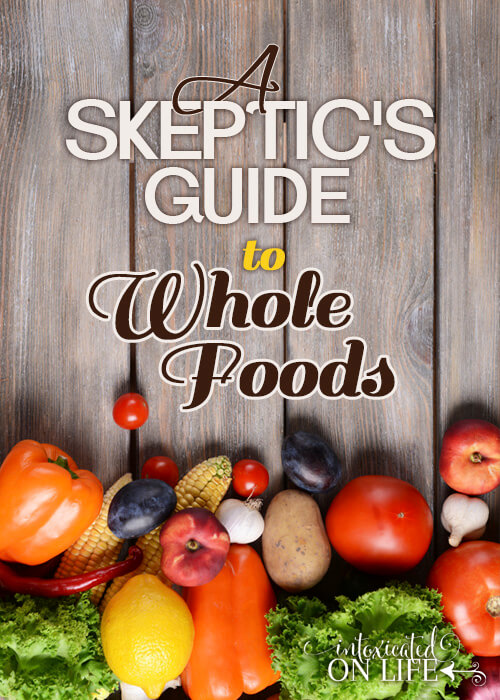
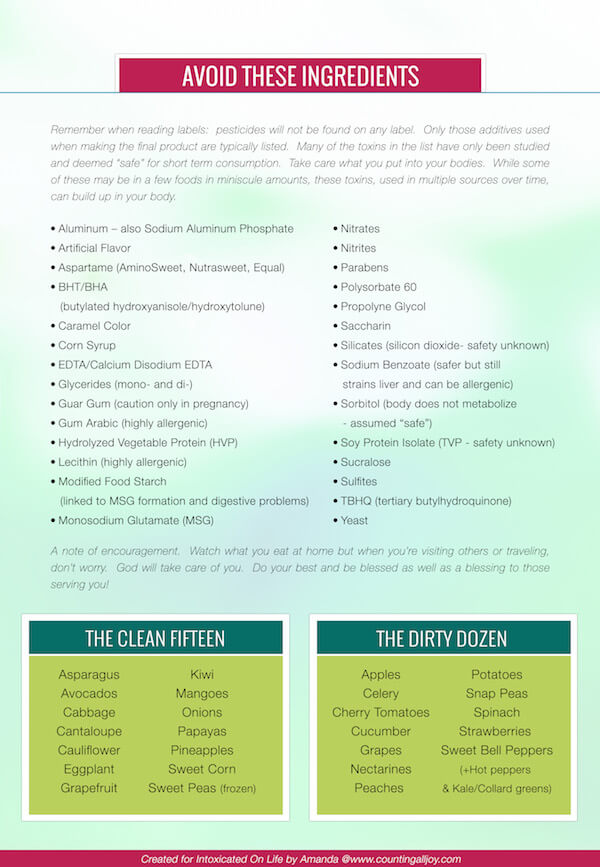
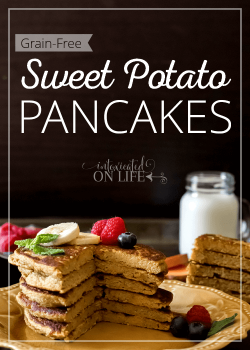
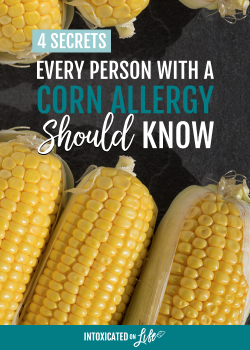

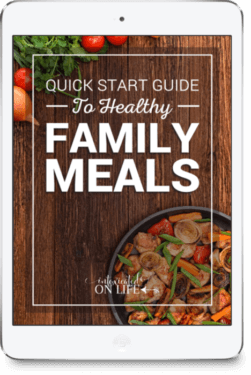
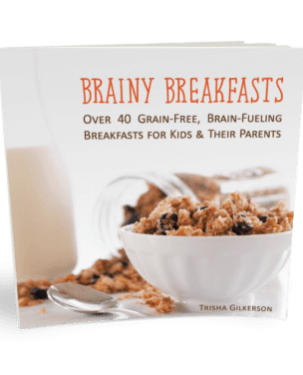

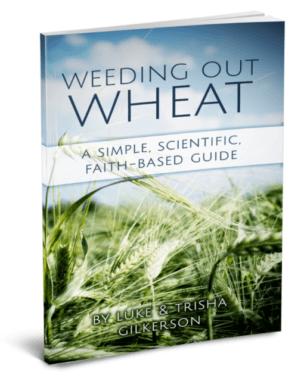
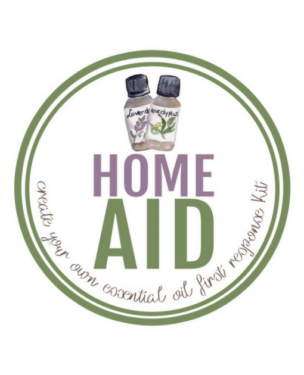

We actually very purposely do what I call a semi-whole food diet. I have switched the things we eat on a daily or very often basic to not dyes, preservatives, etc. But picking up the occasional package of Oreos, etc. isn’t a huge deal. Some of our snack foods are not whole foods either but things like bread, peanut butter, yogurt, etc. I do the healthy version. I also make a lot of our own baked goods and use pure cane sugar not refined, use maple syrup we make to sweeten plain yogurt, etc. It’s a bunch of small changes.
(visiting from WFMW)
That’s right Julie! I totally do the same thing. It’s the frequent intake of the processed foods that create the major problems. For some with health issues, even the small doses can cause issues. But like you, I do pick up the occasional processed food. We choose to do that in wisdom, with our schedule, and how we have eaten throughout all our days added up. I also like to be able to go to a friends house and eat whatever they serve without concern! Like you said it is a bunch of small changes, and those add up big. Thank you for sharing 🙂 Blessings ~ Amanda
Can’t wait to take a look at that course! Thanks for such a thorough post. We have seen a huge change since changing our diets – we switched over because of celiac, autism and adhd in the family. we are gf/mostly cf and additive free (for the most part) – i really want to laser-beam focus on whole foods. Thanks so much!
You are welcome Cindy! Thank you for the feedback. 🙂 Amanda
I’ll admit, I’m totally a skeptic–about the money aspect. Perhaps it varies regionally (I can never do the 5$ dinner lady meals for anywhere near 5 bucks) but I recently cut sugar and yeast out of our diets (6 member family) on the recommendation of our naturopath for a month and our grocery bill skyrocketed. Considering that I was only cutting out cereals, a very few number of packaged snacks (like 2-3 at most) the obvious sugar and frozen canned juice, it was shocking (and a little nauseating) to get to the cash-out and find that the abundance of fresh fruits and veggies, seeds and nuts, extra plain yogurt and the odd specialty item (real maple syrup–a total rare treat in our house, sugar free peanut butter for my son who can’t go a day without his pb&j) had shot our two week grocery bill from about $300 to $450. I didn’t know how we were going to manage the whole month! And then of course most of that produce was gone in 5 days and I had to go spend another 100$ or so bucks! And this is at the absolutely cheapest budget grocery chain in Canada. I am more convinced now than ever before that eating healthy is not cheaper at all. What was even more discouraging is that yes, the live blood cell analysis follow up did show an improvement in all my kids, so it was good to know that the month of sacrifice had not been in vain, but…without that lab test, we wouldn’t have been able to tell at all. My 11 year old lost weight, which was concerning when she was not overweight to begin with–and she’s a very good eater, but the entire month was filled with complaints and arguments just trying to convince my kids that this was going to benefit them. They did settle down some and stop giving me quite as hard a time, but the bottom line was that there was no discernible change in behaviour or health. Very discouraging.
I am sorry to hear your discouragement Lisa. I hope the next post in the series will help you more. It is about how I budget and what the whole foods are in our house. Stick around for that. Perhaps it will shed some light into your situation.
Addressing what you said, when I switched over for a time and reduced somethings like the Dr. told me. It DID have the same affect on our budget. We are a family of 6 too. So I totally understand how frustrating that can be. In the next post, you will see how I do it today. We are almost entirely sugar free and yeast free too. 🙂 Of course, we do live in the U.S. but prices have definitely risen all over the world. It can be tough!
As for the changes. My kids lost weight too and didn’t need to when we were in a serious health state. Overtime, it balanced out. As for the emotional changes, back talk about the changes, etc. Well that stems from more than just food. Ultimately it revealed to me that I had some issues with my kids that I didn’t know I had until we made those changes! WOW! My eyes were opened! The food we pulled did make a difference but I didn’t see it fully until we had removed it from our house for a long time and then added it back in. That’s when I really saw…”GREAT! What we did DID make a difference.” For some of the things we changed (we did GAPS) bowel movements and sleep patters changed as well as blood work and that was a huge blessing to our whole family.
I encourage you: Don’t give up just yet. Stand by for another post. Pray about it all, and see what will work best for you and what YOU need to do. Don’t worry about what others feel is important. Make the changes necessary to your families needs and budget 🙂 Blessings! Amanda
Well, I’m interested to hear what you’d have to say about budget and food choices. I found the month very difficult because many times I just didn’t have a clue what to make for dinner or offer for breakfast–when you’ve eaten cereal for breakie your entire life, even casting about for other foods is exasperating. One site recommended packing dinner-type food for on the go snacks, like a slice of chicken…what?! I can afford one package of chicken every two weeks and that feeds my whole family for one meal–save a slice for snacking?! No way! Internet searches were just overwhelming or used foods I didn’t even recognize never mind know how to cook or serve them. I had my system down pat of meal planning and list making using pepperplate and now half my recipes were not suitable. 🙁
I wouldn’t say that our diet changes revealed anything I didn’t already know about my kids’ attitudes, but I also think it’s unreasonable to make huge changes in their lives, removing things they love and enjoy, and expect them not to complain. Sure it’s a fleshly response that *shouldn’t* happen but they are kids in progress. I have continued some of our changes even now that our month is done…still not buying frozen juice except pure oj, still avoiding the sugary cereals (we had gotten quite bad with the sugar pops and honeycomb and such) and still not buying the pudding cups or granola bars. I’m pleased with those changes. But I quit buying the pure maple syrup–that’s an extra 20$ a week I can’t spare! (sure wish I could though…so yummy..)
Lol! Yes pure maple syrup certainly is super yummy 🙂 I completely appreciate where you’re coming from. We have been there too! And it can be tough with a limited income, which we have here for sure.
I will try to address all of your questions and concerns in the posts to follow.
P.S. I hope I didn’t seem like I was saying your kiddos (or mine) aren’t in progress. The Lord knows I am too. We all will be till we die right? 🙂
Years ago our family changed our diets to completely organic, grass-fed, and pasture raised foods. No artificial anything, no preservatives, and no processed foods. We raised our ten children without insurance and had home births with natural remedies. Now our oldest is 34 years old, happily married with 4 beautiful healthy children, and the rest of our family is healthy and happy as we look at all the surgeries, sicknesses, and behavior problems of our relatives that told us it was “too expensive” to change our diet. Using God’s wisdom, our grocery bills are now cheaper than before especially minus the health care bills. Ron and Pam
Praise God! What a testimony! Thank you for sharing Ron and Pam. I think we all need to be reminded of testimonies like yours. God’s wisdom is truly the key. He can make it happen. We just need to be willing and obedient as we seek His wisdom and grace. Blessings! Amanda